Explore Mount Qingcheng: Nature, Culture, and Spirituality Combined
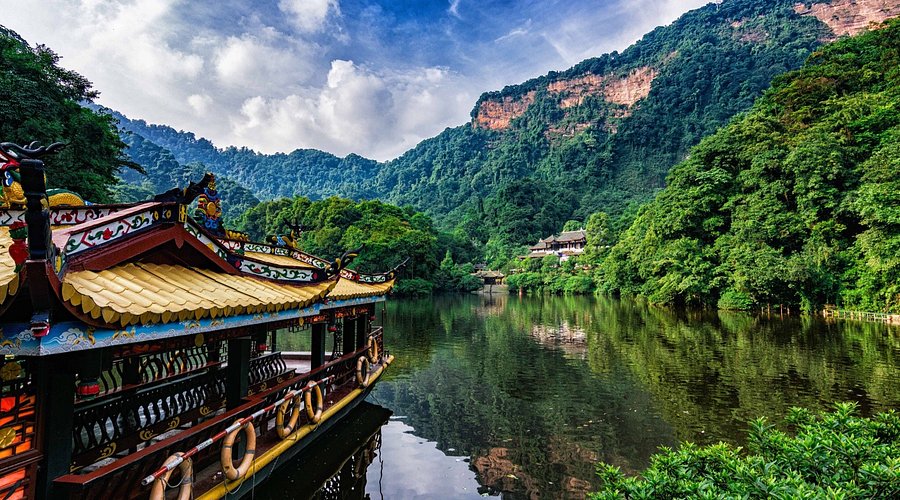
An Essential Guide to Visiting Mount Qingcheng
Nestled in the verdant landscape of Sichuan Province, Mount Qingcheng (青城山) emerges as a captivating blend of natural beauty and rich cultural heritage. Often revered as the birthplace of Taoism, this sacred mountain beckons travelers with its serene trails, ancient temples, and breathtaking vistas. Just a short journey from Chengdu, it offers an escape from the bustling city life, inviting visitors to immerse themselves in tranquility and spirituality.
As you embark on this enchanting adventure, prepare to traverse winding paths flanked by lush forests and rugged peaks, where the air is infused with the subtle fragrance of joss sticks from the many temples that dot the landscape. Whether you’re seeking a challenging hike to the summit or simply wish to stroll amidst the picturesque surroundings, Mount Qingcheng promises a rewarding experience for adventurers and peace-seekers alike.
The mountain’s charm lies not only in its stunning scenery but also in its rich history. Explore ancient structures that have stood the test of time, learn about the philosophies of Taoism, and perhaps even share a cup of tea with local monks, who embody the mountain’s tranquil spirit. With its UNESCO World Heritage status, Mount Qingcheng is a destination that resonates deeply with those who appreciate the harmonious relationship between nature and spirituality.
So lace up your hiking boots, bring your sense of wonder, and prepare to uncover the secrets of this iconic mountain that has inspired generations. Mount Qingcheng awaits, ready to offer you an unforgettable journey into the heart of China’s cultural and natural splendor.
In This Guide
- An Essential Guide to Visiting Mount Qingcheng
- The Rich History and Legends of Mount Qingcheng
- Main Highlights: What You Absolutely Can’t Miss
- Planning Your Visit: A Practical Guide
- Tickets: Prices, Booking, and Tips
- How to Get There: A Complete Transportation Guide
- Local Cuisine and Accommodation Nearby
- Frequently Asked Questions
- Final Thoughts on Your Trip
The Rich History and Legends of Mount Qingcheng
Nestled in the lush landscapes of Sichuan province, Mount Qingcheng (青城山) is not just a haven for nature lovers and hikers; it is also steeped in rich history and vibrant legends that have shaped its identity over centuries. Renowned as one of the cradles of Taoism, this sacred mountain has attracted pilgrims and scholars alike, drawn to its tranquil beauty and spiritual significance.
The history of Mount Qingcheng can be traced back over two thousand years, with its prominence rising during the Eastern Han Dynasty (25-220 AD). It is here that the legendary figure of Zhang Daoling, the founder of Taoism, is said to have established the Taiping Dao (Way of Peace) sect. The mountain quickly became a spiritual center where Taoist practices flourished, and countless temples emerged, many of which still stand today, offering glimpses into the past.
As you wander through the verdant paths, you may encounter the majestic temples that dot the landscape, such as the Shangqing Temple and the Zushi Temple, both renowned for their architectural beauty and historical significance. These structures not only serve as places of worship but also as repositories of ancient knowledge, housing texts and artifacts that tell the story of Taoism’s evolution in China.
One of the most captivating legends associated with Mount Qingcheng involves the immortals of Taoism, who are said to have roamed its slopes, imparting wisdom to those who sought enlightenment. The mountain is often depicted as a realm where the mundane meets the divine, where the whisper of the wind carries the echoes of ancient teachings. Many visitors report a profound sense of peace and connection to nature, a feeling that resonates with the core tenets of Taoism.
This sacred site is also recognized as a UNESCO World Heritage Site, further cementing its status as a vital cultural landmark. The intertwining of natural beauty and historical depth makes Mount Qingcheng a must-visit destination for those seeking not just adventure, but also a deeper understanding of China’s spiritual heritage.
Today, Mount Qingcheng continues to be a popular destination for both local and international travelers. The well-maintained trails, steeped in history and surrounded by breathtaking scenery, offer a unique opportunity to reflect on the teachings of the past while experiencing the beauty of nature. Whether you are hiking to its highest peak or enjoying a quiet moment in one of its ancient temples, Mount Qingcheng invites you to explore its rich tapestry of history and legends, ensuring that each visit leaves an indelible mark on your journey through China.
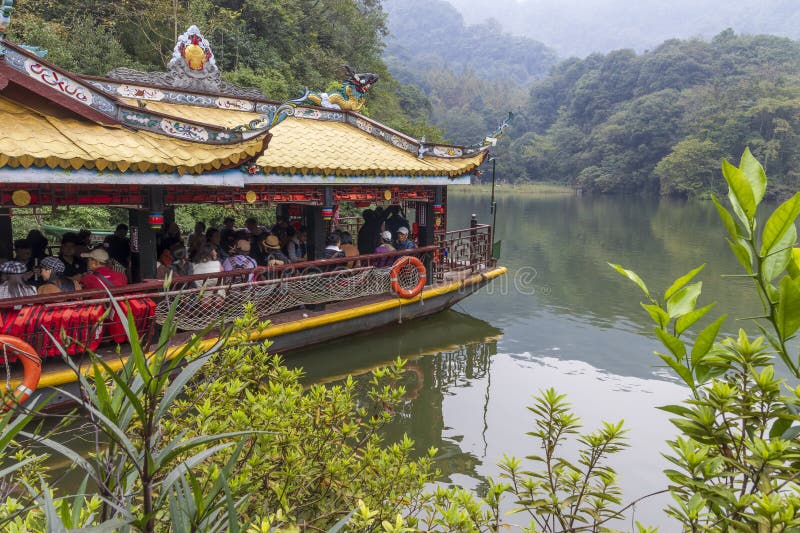
Mount Qingcheng.
Main Highlights: What You Absolutely Can’t Miss
Mount Qingcheng, a UNESCO World Heritage site, is a treasure trove of natural beauty and spiritual significance, making it a must-visit destination for international travelers. Here are the main highlights that you absolutely can’t miss during your journey to this Taoist mountain.
Scenic Hiking Trails
The moment you step onto the winding paths of Mount Qingcheng, you’ll be enveloped by lush greenery and the sounds of nature. The trails are well-maintained, offering varying levels of difficulty, but the most rewarding experience lies in summiting the peak. Expect a rigorous climb of around 10,000 steps that culminates in breathtaking panoramic views and a serene temple at the top. The last stretch is particularly steep, but the sense of accomplishment—along with the fragrance of joss sticks wafting through the air—makes every effort worthwhile.
Ancient Temples
As you hike, you’ll encounter several ancient Taoist temples nestled among the trees. Notable spots include the Shangqing Temple, where you can soak in the tranquil atmosphere and learn about Taoist practices. Each temple tells a story of devotion and offers a moment of reflection, making them perfect stops along your journey. Don’t forget your camera; the architectural beauty against the backdrop of mist-shrouded peaks is simply mesmerizing.
Cable Car Ride
To ease the hiking burden or simply to enjoy a different perspective of the mountain, consider taking the cable car. This option not only saves time but also provides a bird’s-eye view of the stunning landscape. Gliding over the emerald forests and valleys below is an experience you won’t soon forget.
Tea Tasting with Monks
For a truly immersive experience, join local monks for a traditional tea-tasting session. This activity not only allows you to savor high-quality local teas but also offers insight into the meditative practices of Taoism. It’s a peaceful way to unwind after your hike and connect with the spiritual essence of Mount Qingcheng.
Dujiangyan Irrigation System
While in the area, don’t miss the chance to visit the Dujiangyan Irrigation System, located nearby. This ancient engineering marvel, also a UNESCO World Heritage site, showcases the ingenuity of ancient Chinese civilization. A visit here complements your Mount Qingcheng experience beautifully, highlighting the harmony between nature and human innovation.
Local Cuisine
After a day of hiking and exploring, treat yourself to a meal at one of the local restaurants. Szechuan cuisine is famous for its bold flavors and unique spices. Whether you opt for Chen MaPo DouFu for a spicy tofu dish or a flavorful hotpot, be sure to indulge your taste buds in the region’s culinary delights.
Practical Tips
- Entry Fees: Be prepared for some additional costs such as an entry ticket (80 RMB), minibus rides (20 RMB), and cable car fees (60 RMB). These conveniences help enhance your experience and save time.
- Timing: To avoid crowds, plan your visit on weekdays or early in the morning. The mountain is popular with both locals and tourists, especially on weekends.
- Duration: Allocate at least three hours for the hike, but plan for more if you want to explore the temples and enjoy a leisurely tea session.
Embarking on a journey to Mount Qingcheng offers not just a chance to explore stunning natural landscapes but also an opportunity to connect with ancient traditions and spiritual practices. Whether you’re seeking adventure or tranquility, this Taoist mountain promises an unforgettable experience.

Mount Qingcheng.
Planning Your Visit: A Practical Guide
Planning Your Visit: A Practical Guide to Mount Qingcheng
Nestled in the heart of Sichuan province, Mount Qingcheng (青城山) is not just a natural wonder but also a sacred site of Taoism, offering visitors a blend of breathtaking landscapes and rich cultural heritage. Whether you’re an avid hiker, a cultural enthusiast, or simply seeking tranquility, this guide will help you make the most of your visit.
Getting There
Mount Qingcheng is conveniently located about 68 kilometers from Chengdu, making it easily accessible for a day trip. Here are your transportation options:
- By Public Transport: Take a bus from Chengdu’s Ximen Bus Station to Dujiangyan. From Dujiangyan, you can catch a local bus directly to the Mount Qingcheng entrance.
- By Taxi or Rideshare: This is a more comfortable option, especially if you’re traveling in a group. The ride takes roughly 1.5 hours.
- Guided Tours: Many companies offer day tours from Chengdu that combine visits to both Mount Qingcheng and the nearby Dujiangyan Irrigation System. These tours often include transportation, a guide, and sometimes meals.
Best Time to Visit
For the most pleasant experience, aim to visit during the spring (March to May) or autumn (September to November) when the weather is mild. Summer can be hot and crowded, while winter may bring chilly temperatures and occasional snow.
Entry Fees and Costs
While the natural beauty and spiritual significance of Mount Qingcheng are priceless, there are some costs to consider:
- Entrance Fee: 80 RMB
- Minibus to the river: 20 RMB (round trip)
- Boat Ride: 10 RMB (round trip)
- Cable Car: 60 RMB (optional)
These expenses can enhance your experience by reducing hiking time and allowing you to see more of the area.
Hiking and Trails
Mount Qingcheng is renowned for its well-maintained trails that cater to various fitness levels. The hike to the summit can be challenging, especially the last steep section, which comprises over 10,000 steps. Here are a few tips:
- Start Early: To avoid crowds and the midday heat, begin your trek early in the morning.
- Wear Comfortable Shoes: Good hiking shoes are essential, as the paths can be uneven and steep.
- Stay Hydrated: Bring plenty of water, especially if you plan to hike to the summit.
- Take Breaks: There are several rest areas along the trails, where you can enjoy scenic views and catch your breath.
Must-See Attractions
- Ancient Temples: As you ascend, you’ll encounter several ancient Taoist temples that offer a glimpse into the spiritual heritage of the area. Don’t miss the scenic temple at the summit, where you can soak in the tranquility.
- Scenic Views: The panoramic views from the top are breathtaking, offering a perfect backdrop for photos.
- Cultural Experiences: Engage with local monks or participate in a Tai Chi session, often available through guided tours.
Dining Options
After your hike, reward yourself with a meal at one of the nearby restaurants. Options include:
- Chen MaPo DouFu Restaurant: Famous for its authentic Sichuan cuisine, especially its spicy tofu dishes.
- Six Senses Qing Cheng Mountain Sala Thai Restaurant: A great choice for those craving Thai cuisine in a beautiful setting.
Additional Tips
- Crowd Management: Mount Qingcheng can be busy, especially on weekends and holidays. If possible, visit on weekdays to enjoy a more serene experience.
- Bring Cash: While some places accept digital payments, having cash on hand is wise for smaller vendors and local transport.
- Respect the Environment: As a UNESCO World Heritage site, it’s essential to keep the area clean and respect the local culture and traditions.
By following this guide, you’ll be well-prepared to explore Mount Qingcheng’s enchanting beauty and cultural significance. Whether you choose to hike its trails or simply enjoy the serene atmosphere, your visit to this sacred mountain will surely be a memorable experience.
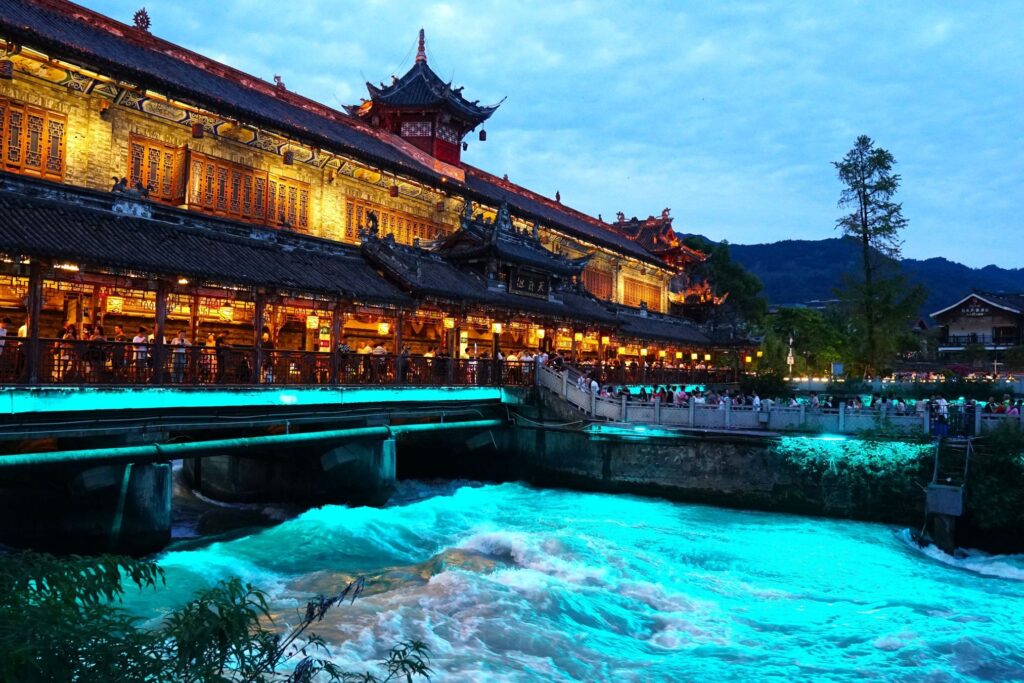
Mount Qingcheng.
Tickets: Prices, Booking, and Tips
When planning your adventure to Mount Qingcheng, it’s essential to consider the costs associated with entry and various transport options that can enhance your experience. Here’s what you need to know about ticket prices, booking, and useful tips to make the most of your visit:
Ticket Prices
- Entry Fee: The entrance ticket to Mount Qingcheng is 80 RMB (approximately $12).
- Transport Options:
- Minibus to the River: 20 RMB round trip (around $3).
- Boat Ride: 10 RMB round trip (about $1.50).
- Cable Car: 60 RMB one way (approximately $9).
These additional costs are generally unavoidable since opting out could significantly lengthen your journey and make the hike more strenuous.
Booking Tickets
Tickets for Mount Qingcheng can often be purchased directly at the entrance. However, for a smoother experience, you can also book tickets through various online platforms or local tour agencies. Many tours that cover Mount Qingcheng include transportation, making it easier to plan your day. Here are a few popular options:
- Private Tours: Look for customized experiences that pair Mount Qingcheng with other nearby attractions, like the Dujiangyan Irrigation System or panda bases. Prices for these tours range from $60 to $300, depending on the inclusions and duration.
- Group Tours: These can be more economical and typically range from $90 to $280 for a full-day experience.
Tips for Your Visit
-
Plan Your Visit: Mount Qingcheng is a popular destination, especially on weekends and holidays. To avoid large crowds, consider visiting on weekdays or arriving early in the morning.
-
Dress Appropriately: Wear comfortable hiking shoes and dress in layers. The weather can change quickly in the mountains, and the trails can be steep and rocky.
-
Stay Hydrated and Nourished: Bring plenty of water and some snacks to keep your energy up during the climb.
-
Capture the Moment: Don’t forget your camera! The scenic views and serene temples along the trails are perfect for memorable photographs.
-
Consider Guided Tours: If you prefer a guided experience, many tours offer knowledgeable guides who provide insights into the history and significance of the area.
By keeping these ticket prices, booking options, and tips in mind, you’re well-equipped to enjoy your journey to Mount Qingcheng, a UNESCO World Heritage site that beautifully blends natural beauty and spiritual significance. Happy hiking!
How to Get There: A Complete Transportation Guide
Getting to Mount Qingcheng is an adventure in itself, offering various transportation options to suit different preferences and budgets. Nestled in the lush Sichuan province, this revered Taoist mountain is easily accessible from Chengdu, making it a popular day trip destination. Here’s how you can reach this stunning site:
From Chengdu to Mount Qingcheng
1. By Public Bus
One of the most economical ways to reach Mount Qingcheng is by taking a public bus from Chengdu. Here’s how:
- Departure Point: Head to the Chengdu Xinanmen Bus Station (新南门汽车站).
- Bus No.: Look for buses heading to the Dujiangyan Scenic Area, which will stop at Mount Qingcheng.
- Duration: The journey typically takes about 1.5 to 2 hours.
- Cost: Tickets range from 15 to 25 RMB, making it a budget-friendly option.
2. By Train
If you prefer a faster option, consider taking a train:
- Departure Station: Chengdu Railway Station or Chengdu East Railway Station.
- Destination: Dujiangyan Railway Station.
- Duration: The train ride lasts approximately 1 hour.
- Transfer: From Dujiangyan Railway Station, take a taxi or local minibus to Mount Qingcheng (around 30 minutes).
- Cost: Train tickets are generally affordable, ranging from 30 to 50 RMB.
3. By Taxi or Ride-Hailing Apps
For a more comfortable and direct option, taxis or ride-hailing services like Didi are excellent choices:
- Duration: A direct taxi ride from Chengdu city center to Mount Qingcheng takes about 1 to 1.5 hours depending on traffic.
- Cost: Expect to pay around 200 to 300 RMB. Using ride-hailing apps can provide a clear fare estimate before you book.
4. Guided Tours
For those who prefer a hassle-free experience, consider booking a guided tour:
- Options: Many tour operators offer full-day trips that include transportation from Chengdu, entry to Mount Qingcheng, and sometimes additional attractions like the Dujiangyan Irrigation System or even the famous Panda Base.
- Duration: Tours generally range from 8 to 12 hours.
- Cost: Prices vary widely depending on the inclusions but typically range from 90 to 300 RMB per person.
On Arrival
Once you arrive at Mount Qingcheng, you’ll find well-marked paths leading to various scenic spots and cultural sites. Be prepared for additional costs such as:
- Entry Ticket: Approximately 80 RMB.
- Minibus to the River: 20 RMB (round trip).
- Boat Ride: 10 RMB (round trip).
- Cable Car: 60 RMB.
These costs are generally unavoidable unless you’re up for a more strenuous hike.
Final Tips
- Best Time to Visit: To avoid the crowds, consider visiting on weekdays or early in the morning.
- Weather Preparedness: Check the weather forecast before you go; it can be misty and rainy, adding to the mountain’s mystique but also affecting visibility.
Embarking on your journey to Mount Qingcheng is not just about reaching a destination; it’s about enjoying the journey through picturesque landscapes and immersing yourself in the rich Taoist culture that flourishes in this tranquil mountain setting. Happy travels!
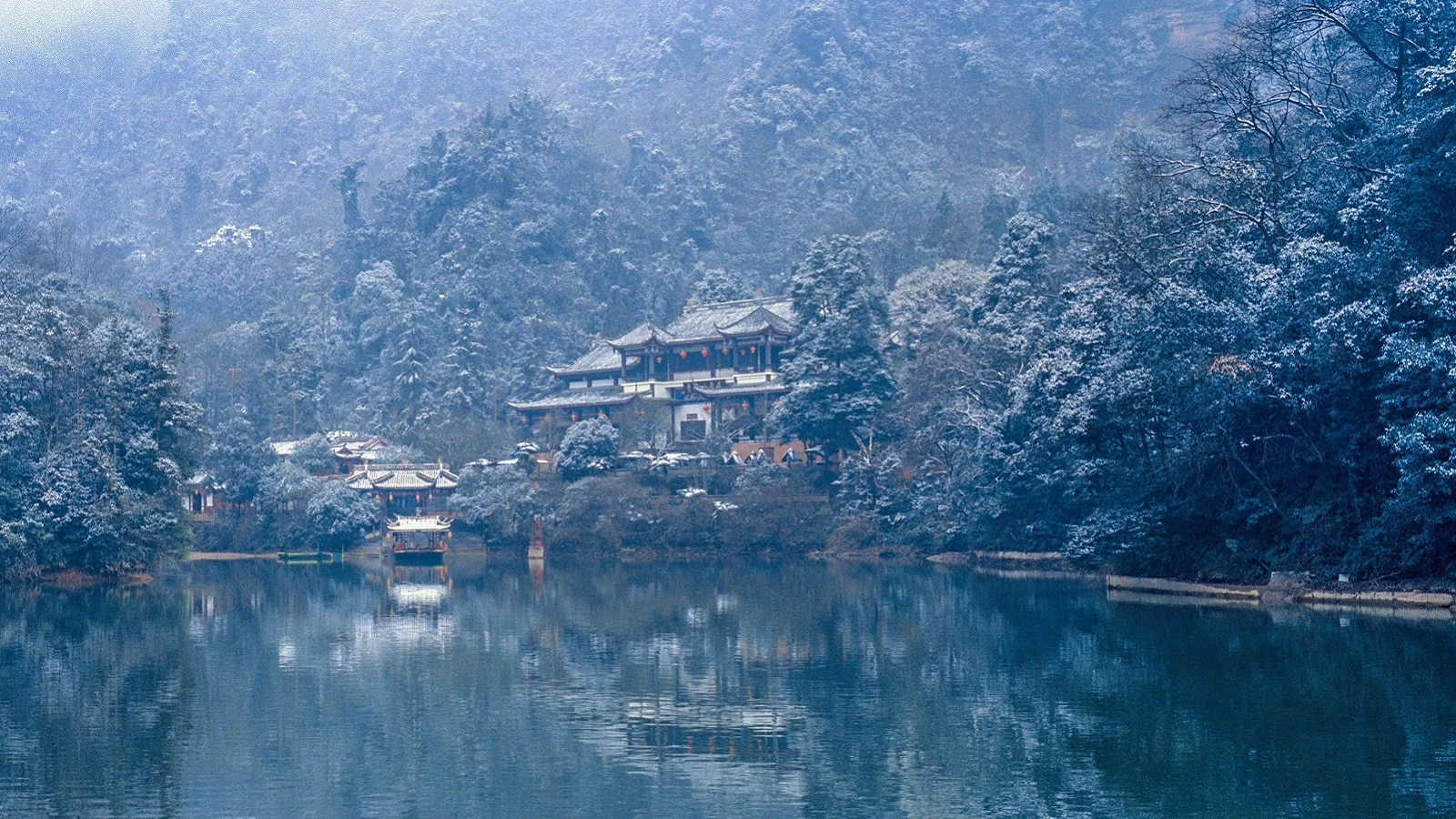
Mount Qingcheng.
Local Cuisine and Accommodation Nearby
Nestled in the lush landscapes surrounding Mount Qingcheng, travelers can indulge in an array of delightful culinary experiences and find comfortable accommodations that enhance their adventure in this serene part of Sichuan.
Culinary Delights
-
Chen MaPo DouFu Restaurant
Just 1.8 miles from the mountain, this renowned eatery serves up the iconic Sichuan dish, Mapo Tofu. Its spicy and aromatic flavors are a must-try for anyone looking to savor authentic local cuisine. With a cozy atmosphere and reasonable prices, it’s perfect for refueling after a day of hiking. -
Chen PoPo ZhenZang Cai (XiAn South Road)
A short 1.4-mile jaunt will lead you to this charming restaurant, known for its traditional Chinese Szechuan dishes. The menu features a variety of flavors, from savory to spicy, ensuring there’s something for every palate. -
Six Senses Qing Cheng Mountain Sala Thai Restaurant
For those desiring a break from Chinese cuisine, this Thai restaurant offers a refreshing alternative. Located 1.2 miles away, it features healthy options and a serene dining environment that allows you to unwind while enjoying the flavors of Southeast Asia. -
Qi Lin Pang Ge Hotpot Shi Fu
If you’re looking for a fun and interactive dining experience, this hotpot restaurant is a great choice. Located about 2 miles from the mountain, you can cook your own ingredients in a bubbling broth, creating a delicious and personalized meal.
Comfortable Stays
-
Six Senses Qing Cheng Mountain
Just a stone’s throw from the base of the mountain, this luxury resort offers a unique blend of modern comforts and traditional charm. Guests can relax in beautifully designed rooms surrounded by nature, with amenities such as a spa and a range of dining options, including the aforementioned Sala Thai. -
Qing Cheng Mountain Hotel
Located conveniently near the mountain’s entrance, this hotel provides comfortable accommodations at a reasonable price. With warm hospitality and essential amenities, it’s a great base for your adventures. -
Dujiangyan Hotel
Situated about 10 miles from Mount Qingcheng, this hotel offers a more urban experience. It features spacious rooms and is close to the famous Dujiangyan Irrigation System, making it a perfect spot for those looking to explore both the mountain and nearby attractions. -
Hostels and Guesthouses
For budget travelers, there are several hostels and guesthouses in the vicinity that provide a cozy and communal atmosphere. These places often organize group hikes and tours, making it easy to meet fellow travelers while experiencing the local culture.
With tempting cuisine and inviting accommodations, your journey to Mount Qingcheng will be enriched, allowing you to fully immerse yourself in the stunning natural beauty and rich cultural heritage of this UNESCO World Heritage site. Whether you’re enjoying a spicy meal or resting in a comfortable bed, every moment spent here will be unforgettable.
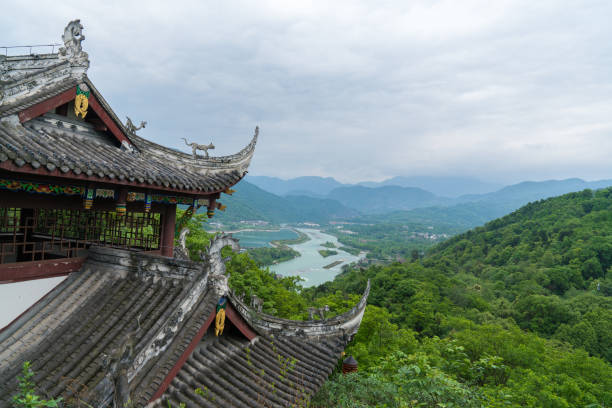
Mount Qingcheng.
Frequently Asked Questions
Frequently Asked Questions about Mount Qingcheng
1. What is the best time to visit Mount Qingcheng?
The ideal times to explore Mount Qingcheng are during spring (March to May) and autumn (September to November) when the weather is mild and the scenery is particularly stunning. Summer can be humid, while winter may bring chilly temperatures, so plan accordingly.
2. How do I get to Mount Qingcheng from Chengdu?
Mount Qingcheng is easily accessible from Chengdu. You can take a bus from Chengdu’s Ximenqiao Bus Station or opt for a tour that includes transportation. The journey typically takes around 1-1.5 hours.
3. What are the opening hours for Mount Qingcheng?
Mount Qingcheng is open daily from 8:00 AM to 5:00 PM. Make sure to arrive early to fully enjoy the area and avoid the crowds.
4. Are there any entrance fees?
Yes, there is an entrance fee of approximately 80 RMB. Additional costs may include a minibus ride to the river (20 RMB round trip), a boat ride (10 RMB round trip), and a cable car (60 RMB).
5. What should I wear when hiking Mount Qingcheng?
Comfortable hiking shoes are essential, as the terrain can be steep and rocky. Dress in layers, as temperatures can fluctuate, and consider bringing a rain jacket if there’s a chance of showers.
6. Is there food available on the mountain?
There are local eateries and tea houses along the trails where you can buy snacks and refreshments. However, it’s advisable to bring some water and snacks with you, especially for longer hikes.
7. Can I hike Mount Qingcheng with children?
While many families do hike Mount Qingcheng, the trail can be challenging, especially for younger children. Make sure to assess your children’s hiking abilities and choose a suitable route. There are also easier paths available for a more leisurely experience.
8. Are there guided tours available?
Yes, several guided tours are offered that include transportation, entrance fees, and a knowledgeable guide. These can enhance your experience by providing insights into the area’s rich history, culture, and natural beauty.
Final Thoughts on Your Trip
As your journey to Mount Qingcheng comes to a close, take a moment to reflect on the myriad experiences that have unfolded amidst its ancient trails and tranquil temples. This sacred mountain, revered in Taoist tradition, offers more than just stunning vistas; it invites you into a world where spirituality and nature converge.
The climb may test your stamina, especially those final steep steps, but the reward is beyond measure—a breathtaking panorama that stretches over emerald forests and misty peaks. Each breath of fresh mountain air and the soft rustle of leaves serves as a reminder of the beauty that surrounds you, while the serene temples whisper stories of centuries past.
Whether you’ve stood atop the summit, meditated with local monks, or simply savored a cup of tea amidst the serene landscape, Mount Qingcheng leaves an indelible mark on your soul. As you descend, carry with you not only the memories of your adventure but also a sense of peace and connection with the world around you. Until your next adventure, may the spirit of Qingcheng inspire your travels and enrich your life.